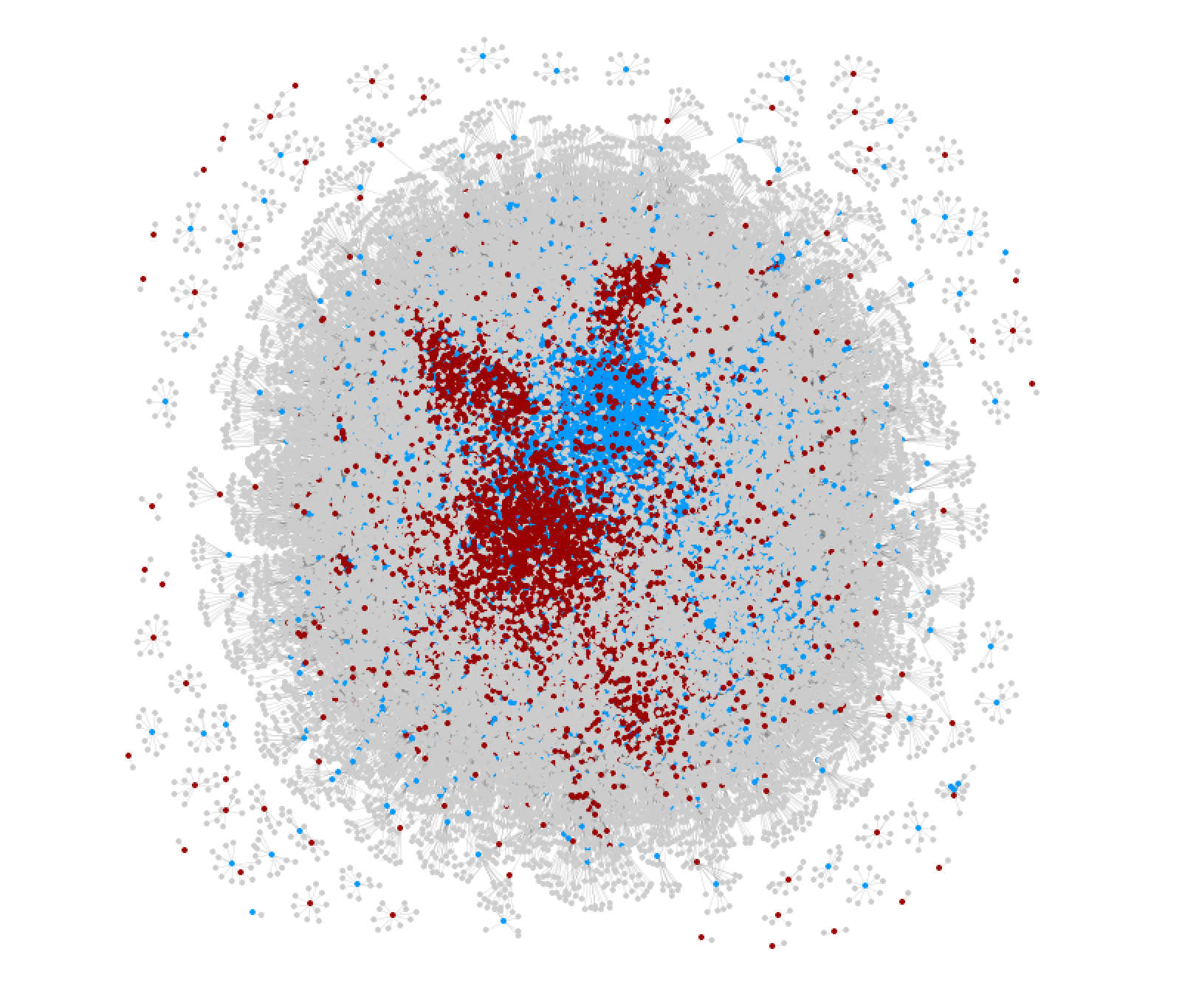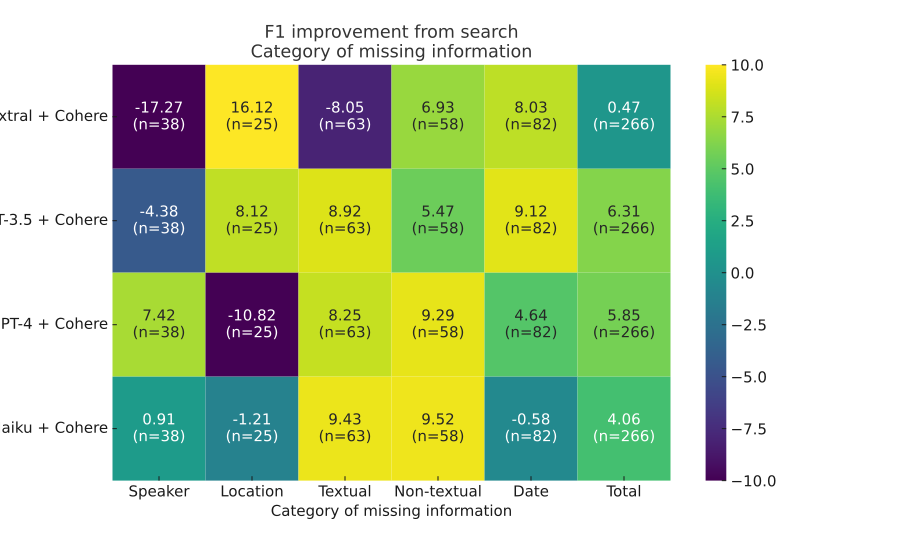Misinformation Resilient Search Rankings with Webgraph-based Interventions

0

Sign in to get full access
Overview
- This paper explores methods to make search engine rankings more resilient to misinformation by leveraging the website link graph (webgraph).
- The researchers propose interventions that adjust PageRank-based ranking algorithms to identify and downrank websites that spread misinformation.
- The goal is to improve the reliability and trustworthiness of search engine results, particularly for topics prone to misinformation.
Plain English Explanation
The paper focuses on a critical issue in the digital age: the spread of misinformation online. When people search for information on the internet, they often rely on search engines to provide relevant and trustworthy results. However, bad actors can manipulate search engine algorithms to push misinformation to the top of the rankings.
To address this problem, the researchers in this paper explored ways to make search engine rankings more resilient to misinformation. They looked at the network of links between websites, known as the webgraph, and how it could be used to identify and downrank websites that are known to spread false or misleading information.
The key idea is to modify the PageRank algorithm, a widely used method for ranking websites, to be more resistant to misinformation. PageRank works by analyzing the links between websites and assigning higher ranks to sites that are linked to by many other trusted sites. The researchers propose adjustments to this algorithm that can detect and demote websites that are spreading misinformation, even if they have many incoming links.
By making search results more reliable and trustworthy, this approach could help prevent the widespread distribution of misinformation and improve the quality of information people find online. Link to paper on algorithmic misjudgement of Google search results
Technical Explanation
The paper presents a new approach to making search engine rankings more resilient to misinformation by leveraging the website link graph, or webgraph. The researchers propose several interventions that can be applied to PageRank-based ranking algorithms to identify and downrank websites that are known to spread misinformation.
The core idea is to incorporate webgraph-based signals into the PageRank calculation to better detect and demote websites that are contributing to the spread of false or misleading information online. This involves analyzing the network of links between websites and adjusting the PageRank scores of sites based on their connections to other sites that have been identified as sources of misinformation.
The researchers explore several specific interventions, including:
- Misinformation-Aware PageRank: Modifying the PageRank algorithm to incorporate a "misinformation score" for each website, which is used to discount the influence of sites known to spread misinformation.
- Webgraph Partitioning: Dividing the webgraph into clusters of related websites and applying different PageRank adjustments to each cluster based on its misinformation risk profile.
- Targeted Link Pruning: Selectively removing or downweighting links between websites to disrupt the propagation of misinformation through the webgraph.
The paper presents experiments and evaluations demonstrating the effectiveness of these interventions in improving the resilience of search engine rankings to misinformation, particularly for topics that are prone to the spread of false or misleading content. Link to paper on user-centered misinformation interventions
Critical Analysis
The paper presents a thoughtful and well-designed approach to addressing the critical challenge of misinformation in search engine results. The webgraph-based interventions proposed are technically sound and have the potential to significantly improve the reliability and trustworthiness of search engine rankings.
However, the paper also acknowledges several important limitations and areas for further research. One key challenge is the difficulty of accurately identifying websites that are spreading misinformation, as this can be a complex and subjective determination. The researchers suggest that incorporating external misinformation signals or crowdsourcing techniques may be necessary to improve the accuracy of these classifications.
Another potential issue is the risk of unintended consequences, where the misinformation-aware ranking adjustments could inadvertently harm the visibility of legitimate but unconventional or dissenting viewpoints. The researchers emphasize the need to carefully balance the goal of misinformation resilience with preserving a diversity of perspectives and voices online. Link to paper on improving health question answering
Overall, this paper presents a promising and well-considered approach to a critical challenge facing search engines and online information consumption. While more research and refinement may be needed, the webgraph-based interventions described offer a compelling path forward for building more resilient and trustworthy search experiences. Link to paper on using hypergraphs for disinformation
Conclusion
This paper explores innovative ways to make search engine rankings more resilient to the spread of misinformation online. By leveraging the website link graph, or webgraph, the researchers propose several interventions that can be applied to PageRank-based ranking algorithms to identify and downrank websites known to be sources of false or misleading information.
The key insight is that the structure and connections within the webgraph can provide valuable signals for detecting and mitigating the influence of misinformation-spreading websites, even if they have high PageRank scores. The proposed techniques, including misinformation-aware PageRank, webgraph partitioning, and targeted link pruning, have the potential to significantly improve the reliability and trustworthiness of search engine results, particularly for topics prone to the spread of false or misleading content.
While the paper acknowledges some important limitations and areas for further research, the webgraph-based approach represents a promising step forward in the ongoing battle against online misinformation. By making search results more resistant to manipulation by bad actors, this work could help ensure that people have access to accurate, reliable, and trustworthy information when they turn to search engines for answers. Link to paper on unbiased learning to rank
This summary was produced with help from an AI and may contain inaccuracies - check out the links to read the original source documents!
Related Papers


0
Misinformation Resilient Search Rankings with Webgraph-based Interventions
Peter Carragher, Evan M. Williams, Kathleen M. Carley
The proliferation of unreliable news domains on the internet has had wide-reaching negative impacts on society. We introduce and evaluate interventions aimed at reducing traffic to unreliable news domains from search engines while maintaining traffic to reliable domains. We build these interventions on the principles of fairness (penalize sites for what is in their control), generality (label/fact-check agnostic), targeted (increase the cost of adversarial behavior), and scalability (works at webscale). We refine our methods on small-scale webdata as a testbed and then generalize the interventions to a large-scale webgraph containing 93.9M domains and 1.6B edges. We demonstrate that our methods penalize unreliable domains far more than reliable domains in both settings and we explore multiple avenues to mitigate unintended effects on both the small-scale and large-scale webgraph experiments. These results indicate the potential of our approach to reduce the spread of misinformation and foster a more reliable online information ecosystem. This research contributes to the development of targeted strategies to enhance the trustworthiness and quality of search engine results, ultimately benefiting users and the broader digital community.
Read more4/16/2024


0
Dredge Word, Social Media, and Webgraph Networks for Unreliable Website Classification and Identification
Evan M. Williams, Peter Carragher, Kathleen M. Carley
Proactive content moderation requires platforms to rapidly and continuously evaluate the credibility of websites. Leveraging the direct and indirect paths users follow to unreliable websites, we develop a website credibility classification and discovery system that integrates both webgraph and large-scale social media contexts. We additionally introduce the concept of dredge words, terms or phrases for which unreliable domains rank highly on search engines, and provide the first exploration of their usage on social media. Our graph neural networks that combine webgraph and social media contexts generate to state-of-the-art results in website credibility classification and significantly improves the top-k identification of unreliable domains. Additionally, we release a novel dataset of dredge words, highlighting their strong connections to both social media and online commerce platforms.
Read more9/18/2024


0
Web Retrieval Agents for Evidence-Based Misinformation Detection
Jacob-Junqi Tian, Hao Yu, Yury Orlovskiy, Tyler Vergho, Mauricio Rivera, Mayank Goel, Zachary Yang, Jean-Francois Godbout, Reihaneh Rabbany, Kellin Pelrine
This paper develops an agent-based automated fact-checking approach for detecting misinformation. We demonstrate that combining a powerful LLM agent, which does not have access to the internet for searches, with an online web search agent yields better results than when each tool is used independently. Our approach is robust across multiple models, outperforming alternatives and increasing the macro F1 of misinformation detection by as much as 20 percent compared to LLMs without search. We also conduct extensive analyses on the sources our system leverages and their biases, decisions in the construction of the system like the search tool and the knowledge base, the type of evidence needed and its impact on the results, and other parts of the overall process. By combining strong performance with in-depth understanding, we hope to provide building blocks for future search-enabled misinformation mitigation systems.
Read more9/4/2024


0
Finding Fake News Websites in the Wild
Leandro Araujo, Joao M. M. Couto, Luiz Felipe Nery, Isadora C. Rodrigues, Jussara M. Almeida, Julio C. S. Reis, Fabricio Benevenuto
The battle against the spread of misinformation on the Internet is a daunting task faced by modern society. Fake news content is primarily distributed through digital platforms, with websites dedicated to producing and disseminating such content playing a pivotal role in this complex ecosystem. Therefore, these websites are of great interest to misinformation researchers. However, obtaining a comprehensive list of websites labeled as producers and/or spreaders of misinformation can be challenging, particularly in developing countries. In this study, we propose a novel methodology for identifying websites responsible for creating and disseminating misinformation content, which are closely linked to users who share confirmed instances of fake news on social media. We validate our approach on Twitter by examining various execution modes and contexts. Our findings demonstrate the effectiveness of the proposed methodology in identifying misinformation websites, which can aid in gaining a better understanding of this phenomenon and enabling competent entities to tackle the problem in various areas of society.
Read more7/16/2024